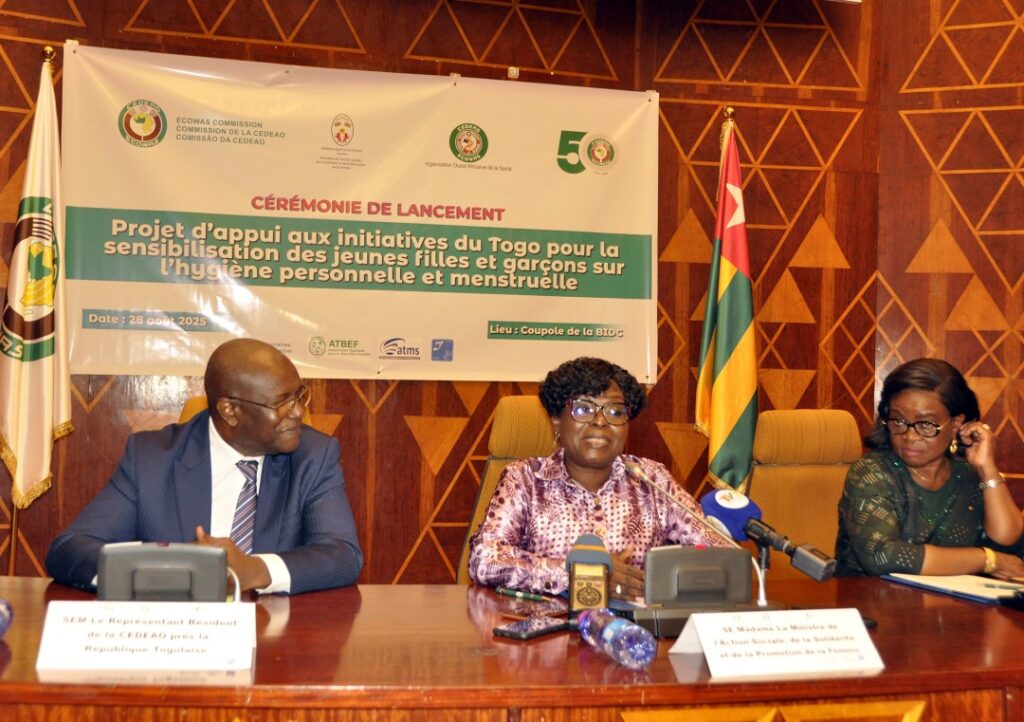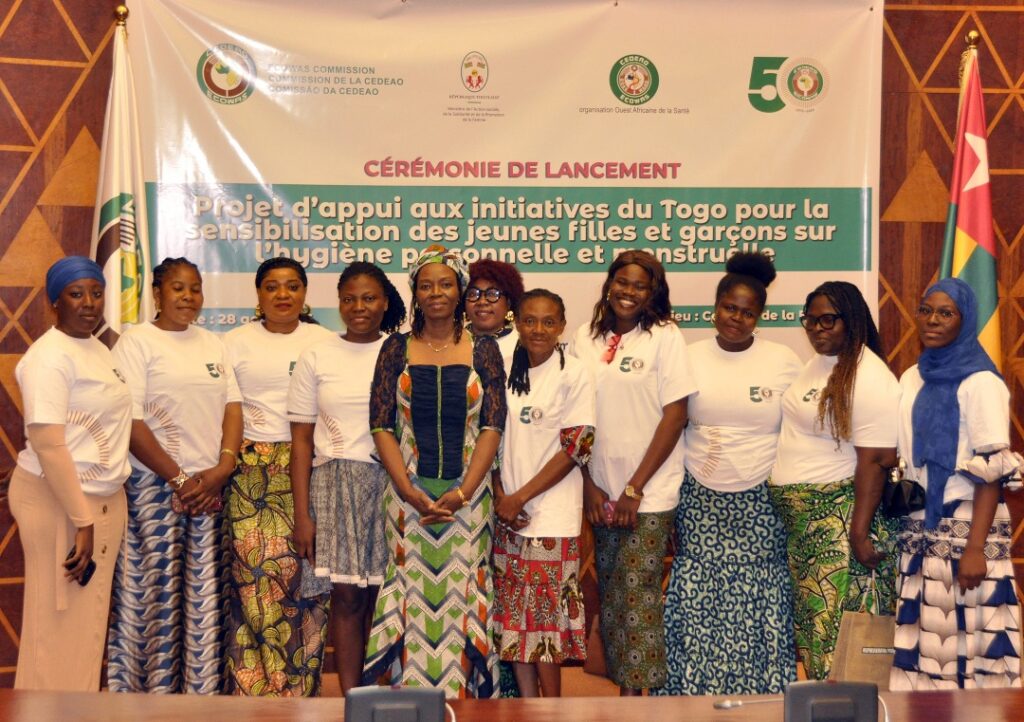ECOWAS Launches Game-Changing Hygiene Project for Togolese Youth.
By Raymond Enoch
In a vibrant ceremony held in the heart of Lomé on August 28, 2025, the Economic Community of West African States (ECOWAS), in collaboration with the West African Health Organization (WAHO), officially launched a groundbreaking pilot project aimed at tackling one of the region’s most pressing but often overlooked challenges: personal and menstrual hygiene among young people.

The initiative, backed by the Ministry of Social Action and supported by the Governor of Greater Lomé and the ECOWAS Resident Representative, signals a powerful move toward empowering girls and promoting health education in schools.
Over the course of the next year, the project will train 100 local seamstresses to produce 5,000 reusable sanitary pads. These eco-friendly and cost-effective pads will be distributed across twelve schools in the Maritime, Kara, and Plateaux regions—directly addressing the lack of access to menstrual products that has led to school absences and stigma for countless young girls.

“This is more than just a health initiative,” said the Minister of Social Action during the launch. “It is about restoring dignity, breaking taboos, and giving young girls the confidence to stay in school and thrive.”
The project not only addresses an urgent public health concern but also creates a sustainable local economy around menstrual products, placing women and girls at the center of the solution. In a region where disposable pads are both expensive and environmentally taxing, reusable alternatives offer a culturally appropriate, green innovation.
For ECOWAS, the move is a reaffirmation of its commitment to inclusive development, gender equality, and improved health outcomes across West Africa. The project also aligns with broader efforts to integrate menstrual health into public policy—a long-ignored aspect of social development.
“With this initiative, we are showing that small changes can lead to systemic impact,” noted the ECOWAS Resident Representative. “Empowering women and girls must begin with access—access to information, to education, and to basic hygiene.”
As the pilot phase rolls out, many are watching closely with hopes that this model can be replicated across the region.
This initiative is not just stitching together sanitary pads—it’s sewing the fabric of a more equal and healthier future for the next generation.










